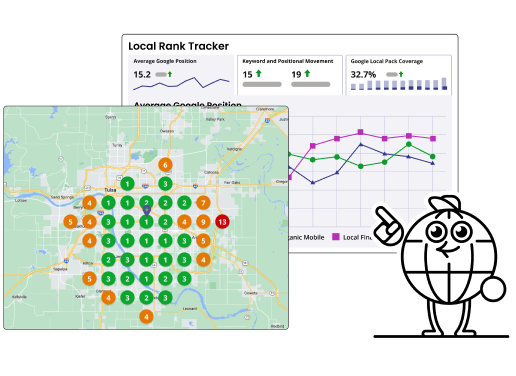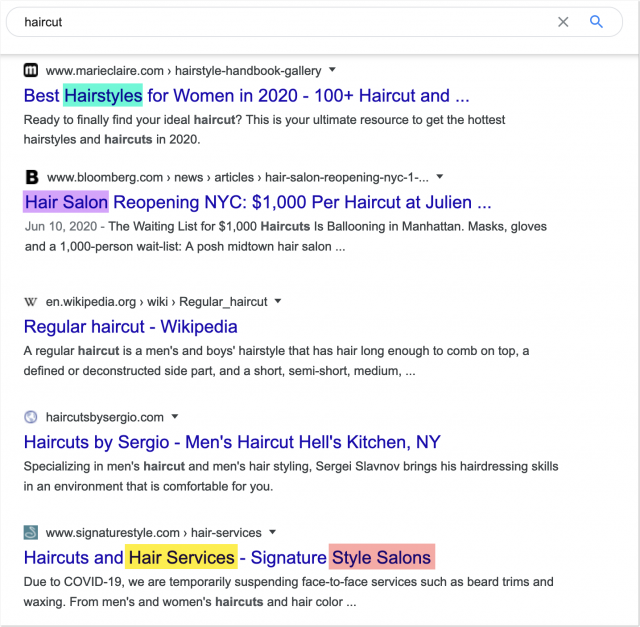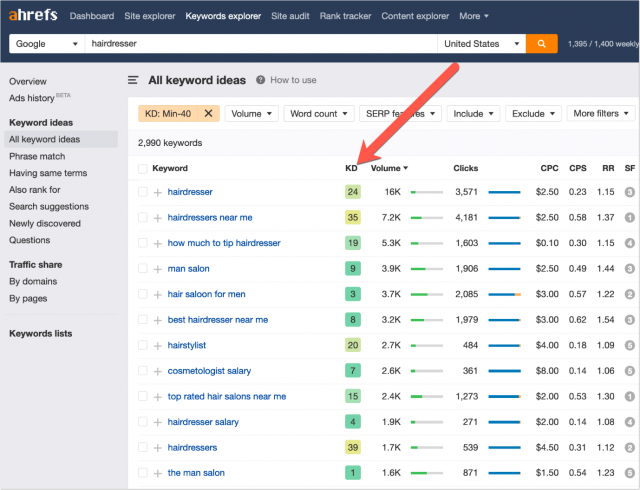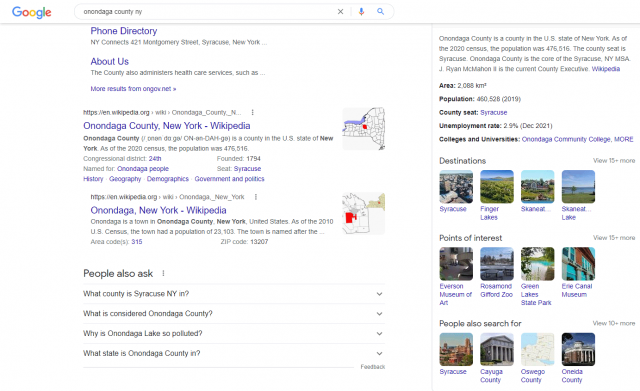
How to Do Local Keyword Research: Step-by-step
Keyword research is one of the major cornerstones of marketing success for any local business targeting greater visibility in the local search results.
If you’re looking for ways to boost your local website’s local pack presence, or simply set up local rank tracking, a well-organized local keyword research process is the first step towards achieving that goal.
What is local keyword research?
Local keyword research is a process conducted by local businesses to find the search terms that consumers in the local area use when searching for nearby local businesses, products, and services. It helps local businesses to correctly target their SEO efforts so they are more visible to local consumers in their moment of intent.
Related: How to Master Local Keyword Research – Free Online Course
Why is keyword research important for local SEO?
Targeting the correct search terms forms the basis of every effective local SEO strategy. It is the only way to be sure that your efforts are focused on the terms that your target customer is using to find your products and services via local search.
Basing your keyword selection on guesswork opens you up to the risk of using incorrect terms, having to narrow a keyword base, and failing to account for all variations of relevant search phrases.
A research-based keyword list allows you to:
- To create landing pages that focus on searchable words and phrases.
- To understand search behavior better.
- To deepen your understanding of your target audience.
- To find related markets to expand into, and/or refocus your products or services to.
- To discover more ways to attract local consumers.

Put Your Rankings on the Map. Literally.
Track and improve rankings with BrightLocal
How do you use keyword research for local SEO?
Local keyword research revolves around identifying three parts of your target search queries: your core term, the keyword modifier, and your location.

You can use keyword research tools to automate the process of building long keyword lists and gathering helpful data such as search volumes and difficulty levels.
Many tools will also offer additional features such as associated keywords, questions people ask, and changes in search volume over time. This can help you spot emerging trends and act quickly to target newly popular keywords.
Popular local keyword research tools include Ahrefs, SEMrush, Serpstat, Kparser, and Moz.
Here are the key steps you need for local keyword research:
- Identify your core term
- “Extend” your core terms with keyword modifiers
- Add your locations
- Organize your relevant keywords by search intent
Step 1: Identify your core term
Your core term is the ‘what’ of your business. For example,
- If you are a local hair salon, your core terms are “hairdresser”, “haircut”, “hairstylist”
- If you are a law firm, your core terms are “lawyer”, “law firm”, “attorney”
You can use your own knowledge of your niche to begin generating a list of core terms. Once you have your own list, do a Google search using some of those terms and note down any keywords that your competitors are using that aren’t already on your list.

Step 2: “Extend” your core terms with keyword modifiers
This modifier makes your core term more specific. It also makes the keyword less competitive. For example:
- “Best hairdressers near me”
- “Find a personal injury lawyer” (keyword modifiers are in italics).
Keyword modifiers make your overall keyword strategy more diverse. They make it easier to pinpoint less competitive terms, which can be easier to rank for.
Keyword difficulty reflects the organic competitiveness of a search query. It is usually calculated based on the assumed “power” of top-ranking domains and pages.
If you’re using a keyword research tool, filter the list by keyword difficulty to find less competitive terms:

Step 3: Add your locations
The location component is the name of the towns, states, counties, and communities your business is located in. For example:
- “Best hairdresser in Albany” and
- “Find a personal injury lawyer in NY”
There are several ways to generate appropriate location-based keywords.
If you have Google Analytics installed on your website (or other Analytics package), this can tell you which locations are generating the most clicks to act as a starting point.
A Google search for a specific location will then show you additional destinations and a ‘people also search for’ snippet to expand your pool.

Step 4: Organize your relevant keywords by search intent
Search intent reflects the user’s goal behind a search query.
There are three types of search intent:
- Commercial (also referred to as transactional and high intent): This is when a user is ready to take an action such as place an order or call for services).
- Informational: This is when a user wants to learn something, research their options, or find answers to their questions.
- Navigational: This is when a user wants to go to your site (these are search phrases that contain your brand or product name).
Assigning keywords to one of these three types of intent makes it much easier to know when a keyword should be used. An information keyword, for example, may be the focus of a piece of content that shows the reader how to solve a particular problem, or answers a question.
With steps one to four completed, you now have a well-researched, relevant, and up-to-date keyword list to aid in your local SEO efforts. Keep in mind that this list should be checked and updated at regular intervals to ensure that you aren’t missing any opportunities to include new search terms within your local SEO campaign.